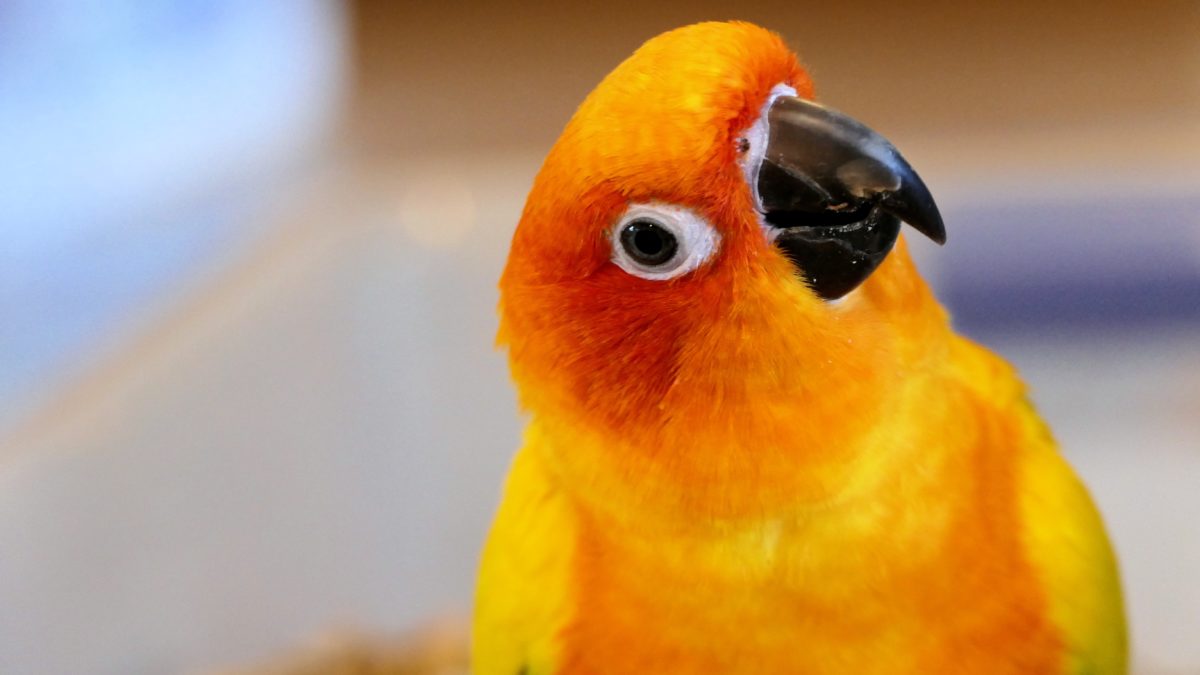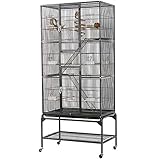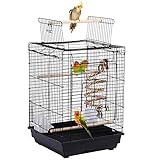Conure Care And Training

Table of Contents
Conure Care And Training
Conures are a type of parrot. They have an average lifespan of 20-35 years. In addition, they are popular pet birds because of their engaging personality. This makes them one of the popular pet birds. If you are new to conure care and training, or even if you have a pet conure, read on to find out some conure car best practices.
I. What Do Conures Eat?
Conures are curious and playful thus they like a varied diet. Give them foods that have different colours, sizes, shapes and textures.
Their diet consists of 50% quality bird seeds or pellets, 40% of vegetables and 10 % of fruits. You could also give them treats such as occasional nuts, mill worm or cricket occasionally.
Be sure to wash the fruits and vegetables thoroughly. Keep in mind that avocado, cocoa, onions and fruit pits are harmful for them.
Take note that some bird seeds have fillers so it is better to buy one that is labelled organic or natural.
Feed your conures once in the morning and once in the evening. You could give them a fresh mix of vegetables in the morning and bird seeds at night.
Before giving your birds certain foods do your research or ask an avian veterinarian.
II. Conure Care And Training – Housing
Conures are great acrobats and escape artists so make sure that their house is secure.
The cage should be approximately 24”H, 24” W and 24” D with bar spacing of ¾”.
It is also advised to let them out of the cage at least an hour a day. Confining them in their cage could alter their behavioral, mental and physical state.
III. Conure Grooming and Bathing
Trimming their toes is for safety purposes. You can do this yourself but only if properly instructed by a veterinarian.
They love to bathe so place an extra water bowl where they could play and bathe in. For a quick shower you can use a spray bottle.
IV. Playtime and Exercise
Conures are intelligent and curious birds. They love hanging toys (example: rope bungees), ladders and mirrors.
Make sure that the toys are non-toxic. It is best to get toys made from natural materials such as bamboo or coconut shells.
V. Training/ Vocalization
They can pick up human voice easily especially when exposed to from an early age.
You can maintain reasonable noise levels if you give them positive attention. Playing or spending time with them also works.
Encouragement, gentle guidance and proper training can prevent behavioural problems.
How To Train Your Conure:
1. Gain their trust by letting them get used to your voice and presence.
2. Provide a proper training atmosphere where they feel safe and let the conures adjust.
3. Teach them simple words first such as “Hi” or “Hello” and practice it with them until they get used to talking.
4. Increase the difficulty, teach them simple phrases like “How are you?” or “Thank you”.
5. Reinforce their training with positive phrases. You can also give them treats to motivate them.
Conure Training Tips:
1. Be prepared, you should have all equipment needed. Have treats for them like nuts for motivation and light colored towel or stick to get their attention. Have a bitter apple spray to deter them from biting inappropriate things like the bars of their cage.
2. Be realistic because like humans, they have their own personality and preferences. Pay attention to their cues and learn to recognize them. They have to feel that there is no need to feel scared so that training becomes easier.
3. Let the bird feel comfortable. Always stand above them, never below so that you are still in the commanding position. Command them gently (say up or stern up) to stand on your finger placed in front of them. If they obey reward them with positive phrases such as “Good Job”.
4. Always hold the bird on chest level. Don’t hold it too low or too high because this gives them an opportunity to escape.
5. To train your bird to step back down onto its perch, practice the same motions using your hands as the ladder. With your free hand, place your finger against its lower breast, above its feet and say “step up”. Do it several times being aware of the bird’s interest, ending the session before it becomes bored. The average training time is about 10 to 15 minutes per day.
6. Be patient when training the birds. It can be frustrating at first but with the right approach they will eventually get it.
7. Be gentle and encouraging. Punishing them will not lead to positive results. This will make the birds angry and might result to behavioral issues. Being gentle will make conure care and training more productive for you and the your pet bird.




 Price: $ 135.98
Price: $ 135.98







